-
 Bitcoin
Bitcoin $96,623.3396
-1.27% -
 Ethereum
Ethereum $2,788.4883
2.18% -
 Tether USDt
Tether USDt $0.9998
-0.01% -
 XRP
XRP $2.3864
-5.56% -
 Solana
Solana $196.6263
-4.79% -
 BNB
BNB $570.3755
-0.42% -
 USDC
USDC $0.9998
-0.01% -
 Dogecoin
Dogecoin $0.2566
-2.82% -
 Cardano
Cardano $0.7342
-1.31% -
 TRON
TRON $0.2225
-0.88% -
 Chainlink
Chainlink $19.2376
-3.78% -
 Avalanche
Avalanche $25.9025
-2.13% -
 Sui
Sui $3.3345
-7.03% -
 Stellar
Stellar $0.3276
-3.74% -
 Toncoin
Toncoin $3.7818
0.20% -
 Shiba Inu
Shiba Inu $0.0...01576
-0.16% -
 Hedera
Hedera $0.2391
-4.44% -
 UNUS SED LEO
UNUS SED LEO $9.8555
0.04% -
 Hyperliquid
Hyperliquid $25.0073
-0.31% -
 Bitget Token
Bitget Token $6.5471
0.74% -
 Litecoin
Litecoin $103.6625
2.49% -
 Polkadot
Polkadot $4.6964
-0.88% -
 Bitcoin Cash
Bitcoin Cash $327.7095
-0.54% -
 Ethena USDe
Ethena USDe $0.9999
0.06% -
 MANTRA
MANTRA $5.7776
0.20% -
 Uniswap
Uniswap $9.3010
2.68% -
 Dai
Dai $0.9998
0.00% -
 Pepe
Pepe $0.0...01004
-1.29% -
 Monero
Monero $227.3692
3.35% -
 Ondo
Ondo $1.3114
-2.77%
What are the tax implications of trading aelf(ELF)Coin?
ELF trading's tax implications vary by jurisdiction, including US (capital gains tax), UK (cryptoasset tax), and Canada (GST/HST and capital gains tax).
Dec 12, 2024 at 03:20 pm

Understanding the Tax Implications of Trading aelf (ELF) Coin
Introduction
aelf is a decentralized blockchain platform designed to enhance scalability and interoperability. Its native token, ELF, serves as a medium of exchange, staking mechanism, and governance tool within the aelf ecosystem. As with any cryptocurrency transaction, trading ELF involves potential tax implications that vary depending on jurisdiction. This article aims to provide a comprehensive overview of the tax considerations related to ELF trading.
1. Tax Treatment of ELF Trading in Different Jurisdictions
The tax treatment of ELF trading can vary drastically among different jurisdictions. It is crucial for traders to understand the applicable tax laws and regulations in their respective countries to ensure compliance and avoid any potential penalties.
- United States: In the US, ELF is classified as a digital asset subject to capital gains tax treatment. Traders must declare their ELF transactions on Form 8949 and calculate their capital gains or losses based on the difference between the purchase price and sale price.
- United Kingdom: The UK categorizes ELF as a 'cryptoasset' and applies tax treatment similar to capital gains. Traders are subject to the 20% tax rate on their ELF trading profits.
- Canada: ELF is considered a commodity in Canada, subject to the Goods and Services Tax (GST) or Harmonized Sales Tax (HST) upon purchase. Capital gains or losses incurred from ELF trading are also taxable.
2. Determining the Cost Basis for ELF Tax Calculations
Establishing the cost basis for ELF purchases is essential for calculating capital gains or losses. The cost basis typically includes the purchase price, transaction fees, and any other expenses associated with the acquisition of ELF tokens.
- Specific Identification Method: This involves identifying each ELF purchase and sale transaction individually, tracking the cost basis accordingly.
- First-In, First-Out (FIFO) Method: Assumes that the first ELF tokens purchased are the first ones sold, using their cost basis for tax calculations.
- Last-In, First-Out (LIFO) Method: Considers the most recently purchased ELF tokens as the ones sold, using their cost basis for tax purposes.
3. Calculating Capital Gains or Losses from ELF Trading
Capital gains or losses from ELF trading are calculated by subtracting the cost basis from the proceeds of the sale.
- Capital Gains: If the proceeds of the sale exceed the cost basis, the difference is considered a capital gain.
- Capital Losses: If the cost basis exceeds the proceeds of the sale, the difference is recognized as a capital loss.
4. Tax Rates for Capital Gains or Losses from ELF Trading
The tax rate applicable to capital gains or losses from ELF trading depends on various factors, including the trader's jurisdiction, holding period, and income level.
- Short-Term Capital Gains: Usually taxed at a higher rate than long-term capital gains, applying to assets held for less than a specified period (e.g., one year in the US).
- Long-Term Capital Gains: Generally taxed at a lower rate than short-term capital gains, applicable to assets held for an extended period (e.g., more than one year in the US).
5. Reporting ELF Trading Transactions for Tax Purposes
Reporting ELF trading transactions for tax purposes is essential to ensure compliance. Traders should keep detailed records of all their ELF transactions, including purchase and sale dates, quantities, prices, and fees.
- Cryptocurrency Tax Software: Utilizing specialized cryptocurrency tax software can simplify the process of tracking and reporting ELF transactions.
- Tax Professionals: Consulting qualified tax professionals can provide guidance on specific tax implications and ensure accurate reporting.
6. Tax Avoidance and Evasion Considerations
While tax optimization strategies are encouraged, traders must avoid engaging in tax avoidance or evasion practices.
- Wash Sales: Selling ELF tokens at a loss and repurchasing them within a short timeframe to generate artificial capital losses is considered a wash sale.
- Offshore Accounts: Transferring ELF tokens to offshore accounts may raise red flags with tax authorities and potentially trigger audits.
- Underreporting Income: Failing to report ELF trading profits or undervaluing assets can lead to legal consequences.
Conclusion
Understanding the tax implications of trading ELF coin is crucial for traders to ensure compliance and mitigate potential tax liabilities. By staying informed about applicable tax laws and regulations, calculating capital gains or losses accurately, and reporting transactions transparently, traders can navigate the complexities of ELF taxation effectively. Seeking professional guidance when necessary can further enhance compliance and optimize tax strategies.
Disclaimer:info@kdj.com
The information provided is not trading advice. kdj.com does not assume any responsibility for any investments made based on the information provided in this article. Cryptocurrencies are highly volatile and it is highly recommended that you invest with caution after thorough research!
If you believe that the content used on this website infringes your copyright, please contact us immediately (info@kdj.com) and we will delete it promptly.
- Aether Drifters: A Secret Lair That's All About the Art
- 2025-02-06 08:21:02
- Solana Bulls Target $1k Under President Trump As JetBolt Takes Spotlight
- 2025-02-06 07:31:02
- Solana Co-Founder Anatoly Yakovenko Opines That Bitcoin Is Heading Toward a "Hybrid" Proof-of-Stake (PoS) Model
- 2025-02-06 07:31:02
- The Cryptocurrency Targeting Global Payments, XRP, is Facing Headwinds
- 2025-02-06 07:31:02
- Utah Advances Plan to Establish Bitcoin Reserve, Benefiting from Its 45-Day Legislative Calendar
- 2025-02-06 07:31:02
- Solaxy (SOLX) Layer-2 Solution For Solana Quickly Gains Momentum With Presale Surpassing $18M
- 2025-02-06 07:31:02
Related knowledge
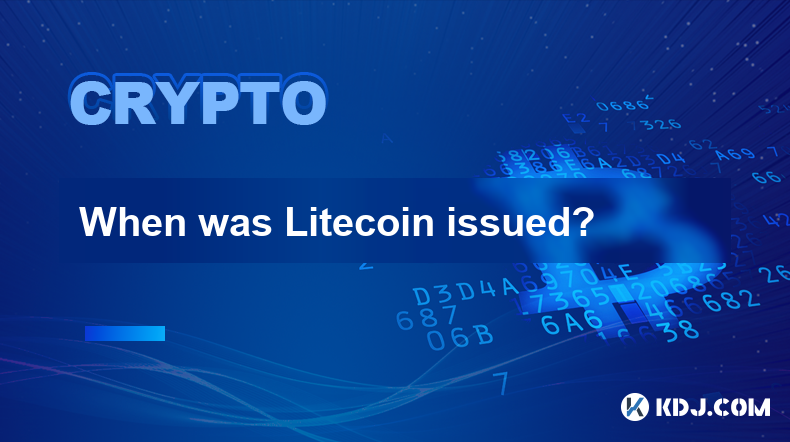
When was Litecoin issued?
Feb 04,2025 at 02:36am
When was Litecoin Issued?Key Points:Litecoin's inception and developmentLitecoin's launch date and market dynamicsLitecoin's technical specifications and key featuresLitecoin's Inception and DevelopmentLitecoin, conceived by former Google engineer Charlie Lee, emerged as a fork of Bitcoin in October 2011. Inspired by Bitcoin's revolutionary blockchain t...
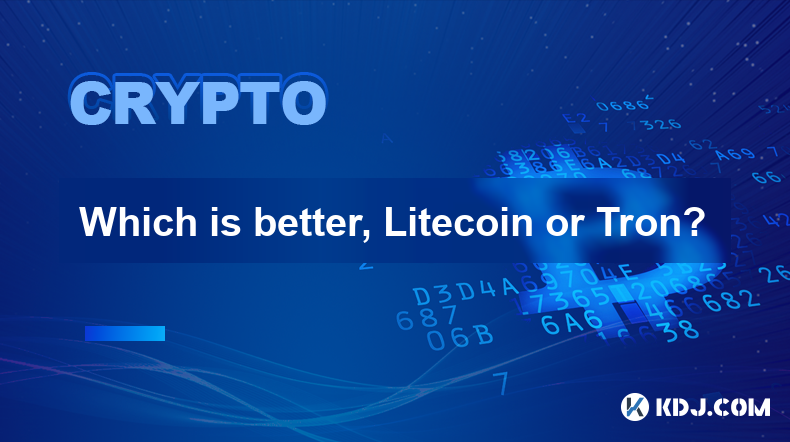
Which is better, Litecoin or Tron?
Feb 04,2025 at 10:30pm
Key Points:Similarities between Litecoin and Tron: Decentralized, open-source blockchain platformsDifferences between Litecoin and Tron: Use cases, consensus mechanisms, transaction speedsFactors to consider when choosing between Litecoin and Tron: Investment goals, risk tolerance, specific use casesPotential benefits and drawbacks of Litecoin and Tron:...
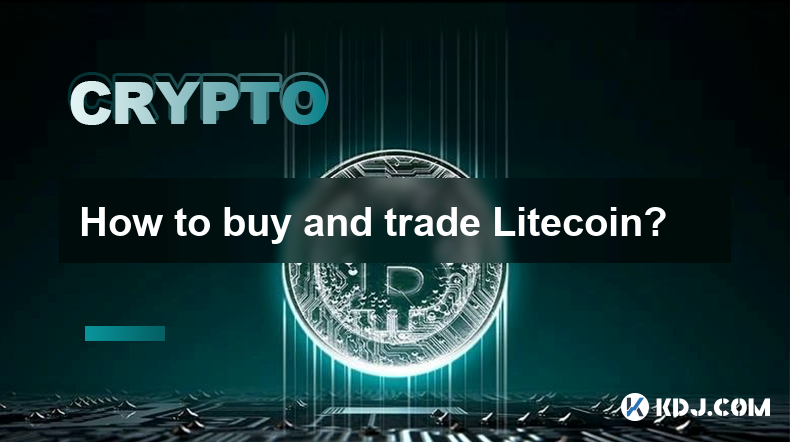
How to buy and trade Litecoin?
Feb 04,2025 at 12:24pm
Key Points:Understand the Basics of LitecoinSelect a Suitable Cryptocurrency ExchangeCreate an Account on the ExchangeFund Your AccountPlace a Buy Order for LitecoinSecurely Store Your LitecoinUnderstand Litecoin TradingHow to Buy Litecoin?1. Understand the Basics of LitecoinLitecoin (LTC) is a decentralized digital currency similar to Bitcoin.Created i...
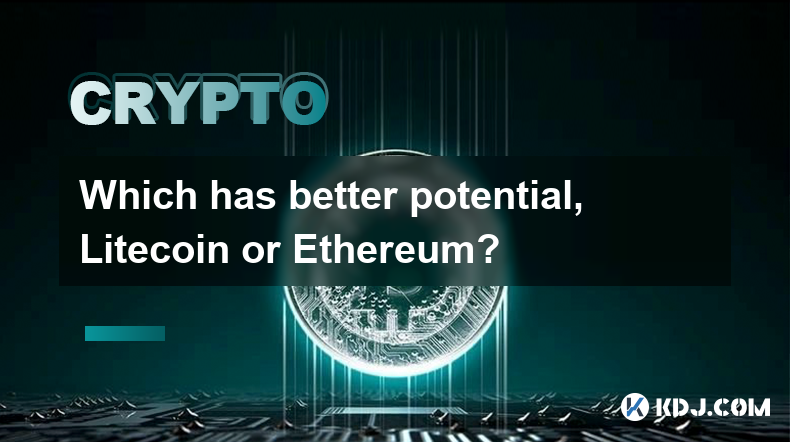
Which has better potential, Litecoin or Ethereum?
Feb 04,2025 at 05:30pm
Key Points:Litecoin and Ethereum are two of the most popular cryptocurrencies in the world.Both coins have their own unique advantages and disadvantages.Litecoin is a faster and cheaper transaction coin than Ethereum.Ethereum is a more versatile platform than Litecoin, and it can be used to create decentralized applications (dApps).Litecoin has a long h...
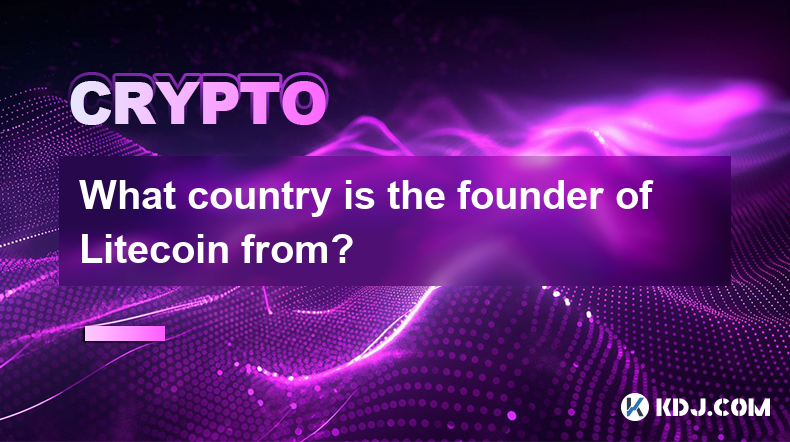
What country is the founder of Litecoin from?
Feb 04,2025 at 05:55am
Key Points:Litecoin's Founder and the Relationship with Charles LeeLitecoin's Technical Features and Similarities to BitcoinLitecoin's Role in the Cryptocurrency Ecosystem and Its PopularityComparative Analysis of Litecoin with Major CryptocurrenciesLitecoin's Community Involvement and PartnershipsArticle Content:Litecoin's Founder and the Relationship ...
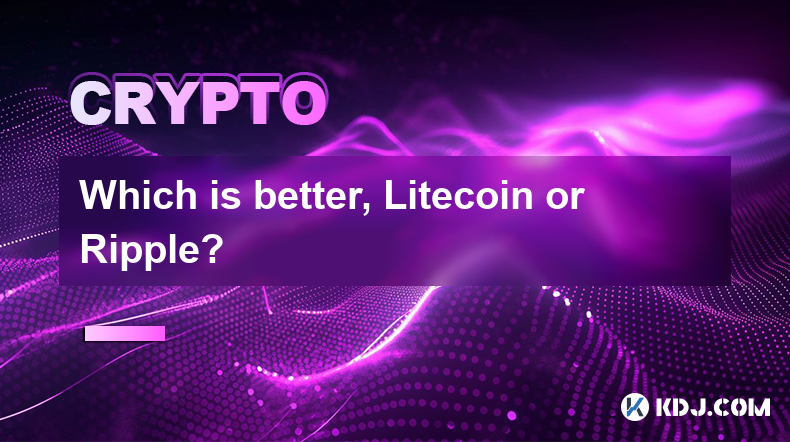
Which is better, Litecoin or Ripple?
Feb 04,2025 at 08:00pm
Key Points:Litecoin: a decentralized, peer-to-peer cryptocurrency based on the Proof-of-Work consensus mechanismRipple: a centralized, enterprise blockchain solution designed for fast and low-cost paymentsDirect comparison of Litecoin vs. Ripple in terms of technology, market capitalization, use cases, and transaction feesPotential benefits and drawback...

When was Litecoin issued?
Feb 04,2025 at 02:36am
When was Litecoin Issued?Key Points:Litecoin's inception and developmentLitecoin's launch date and market dynamicsLitecoin's technical specifications and key featuresLitecoin's Inception and DevelopmentLitecoin, conceived by former Google engineer Charlie Lee, emerged as a fork of Bitcoin in October 2011. Inspired by Bitcoin's revolutionary blockchain t...

Which is better, Litecoin or Tron?
Feb 04,2025 at 10:30pm
Key Points:Similarities between Litecoin and Tron: Decentralized, open-source blockchain platformsDifferences between Litecoin and Tron: Use cases, consensus mechanisms, transaction speedsFactors to consider when choosing between Litecoin and Tron: Investment goals, risk tolerance, specific use casesPotential benefits and drawbacks of Litecoin and Tron:...

How to buy and trade Litecoin?
Feb 04,2025 at 12:24pm
Key Points:Understand the Basics of LitecoinSelect a Suitable Cryptocurrency ExchangeCreate an Account on the ExchangeFund Your AccountPlace a Buy Order for LitecoinSecurely Store Your LitecoinUnderstand Litecoin TradingHow to Buy Litecoin?1. Understand the Basics of LitecoinLitecoin (LTC) is a decentralized digital currency similar to Bitcoin.Created i...

Which has better potential, Litecoin or Ethereum?
Feb 04,2025 at 05:30pm
Key Points:Litecoin and Ethereum are two of the most popular cryptocurrencies in the world.Both coins have their own unique advantages and disadvantages.Litecoin is a faster and cheaper transaction coin than Ethereum.Ethereum is a more versatile platform than Litecoin, and it can be used to create decentralized applications (dApps).Litecoin has a long h...

What country is the founder of Litecoin from?
Feb 04,2025 at 05:55am
Key Points:Litecoin's Founder and the Relationship with Charles LeeLitecoin's Technical Features and Similarities to BitcoinLitecoin's Role in the Cryptocurrency Ecosystem and Its PopularityComparative Analysis of Litecoin with Major CryptocurrenciesLitecoin's Community Involvement and PartnershipsArticle Content:Litecoin's Founder and the Relationship ...

Which is better, Litecoin or Ripple?
Feb 04,2025 at 08:00pm
Key Points:Litecoin: a decentralized, peer-to-peer cryptocurrency based on the Proof-of-Work consensus mechanismRipple: a centralized, enterprise blockchain solution designed for fast and low-cost paymentsDirect comparison of Litecoin vs. Ripple in terms of technology, market capitalization, use cases, and transaction feesPotential benefits and drawback...
See all articles

























































































